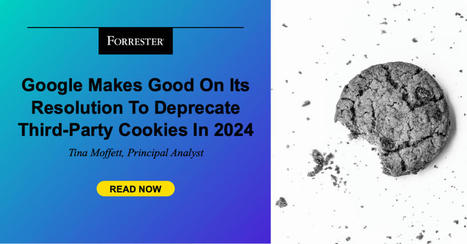The article highlights concerns among Americans about online data privacy, with 84% worried about their data when interacting with brands online. It shows a trend of consumers pulling back from sharing data, with 85% sometimes opting out of company mailing lists and 58% doing so habitually. Additionally, 48% of consumers are more likely to trust brands that collect zero-party data, which is shared willingly to help shape products and services.
Research and publish the best content.
Get Started for FREE
Sign up with Facebook Sign up with X
I don't have a Facebook or a X account
Already have an account: Login

 Your new post is loading... Your new post is loading...
|
|













The emphasis on zero-party data collection reflects a shift towards more transparent and trust-building data practices, resonating with the potential of cross-web clickstream data to provide insights in a privacy-conscious manner. To explore effective strategies for leveraging such data types, download the Consumer Data Types Cheat Sheet at https://www.marteq.io.